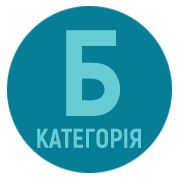DIRECTIONS OF LEARNING TECHNIQUES FOR TEACHING FOREIGN LANGUAGE TO ADULT LEARNERS
DOI:
https://doi.org/10.32782/2307-1222.2023-55-9Keywords:
directions of adult learning techniques, continuous learning, sphere of educational services, andragogic model of learning, andragogic principlesAbstract
The article describes the methodological basis of directions of adult learning techniques within continuous learning. Instruments of socio – economic development of society being main factors introducing changes to traditional education and expanding its scope within the context of globalization are defined. A new status is given to an adult learner and a teacher. Influence of the continuous education in the education sphere and its slowly moving to the sphere of educational services within continuous education are revealed. Importance of implementation of learning techniques for meeting increasing demand of adults for quality education is underlined. Much attention to main directions of education development in the second half of the 20th is paid. The notions of andragogics, andragogic model of learning, and conditions of its formation are considered. The reason for giving a new meaning to the term learning techniques in the education process is revealed. Each condition of andragogic model is analyzed and importance of their applying during the training is proved. Objectives for adult learning are defined and attention to the necessity of taking into account age and psycho – linguistic peculiarities in teaching adults a foreign language is focused. Language training of adults and younger adults aiming at determining the depth of understanding and conceptualization is compared. Ten basic principles of adult learning are stressed. Detailed analysis of every principle will be of great importance for a teacher to structure a lesson and give concrete content for achieving educational objectives. The article reveals the ways of implementing directions in adult learning techniques a foreign language in the plane of continuous education as a part of development a professional. During teaching adult students a foreign language, it is suggested to use as a basis the andragogic model and andragogic principles based on psychological and pedagogical standards and rules.
References
Гончарова-Ільїна Т. Акмеологічний аспект в навчанні дорослих іноземній мові. Наукові записки Ніжинського державного університету імені Миколи Гоголя. Серія «Філологічні науки». Ніжин: НДУ ім. М. Гоголя, 2016. Кн. 2. С. 116–120.
Преснер Р. Специфіка навчання іноземних мов дорослих. Людинознавчі студії. Серія «Педагогіка». 2015. № 31. С. 251–259.
Чхайло Л. Андрагогіка: особливості і проблеми навчання дорослих. Андрагогічні засади післядипломної освіти. 2015. URL: http://www.uk.x-pdf.ru/5pedagogika/47673-1-andragogichni-zasadi- pislyadiplomnoi-osviti-zbirnik-materialiv-vseukrainskoi-naukovo-metodichnoi-internet-konferencii-2.php.
Яцишин О. Психолого-педагогічні особливості навчання іноземної мови дорослих слухачів. Сучасні інформаційні технології та інноваційні методики навчання у підготовці фахівців: методологія, теорія, досвід, проблеми. 2016. URL: http://www.irbis-nbuv.gov.ua/cgi-bin/irbis_nbuv/cgiirbis_64.exe.










